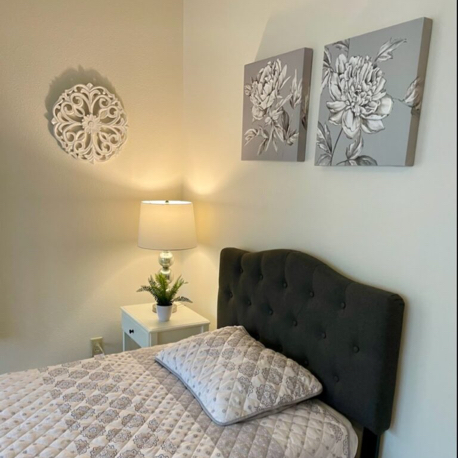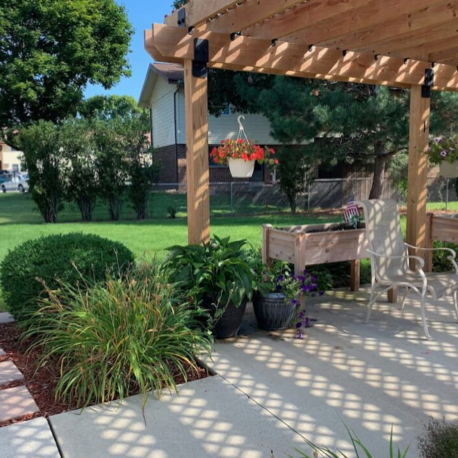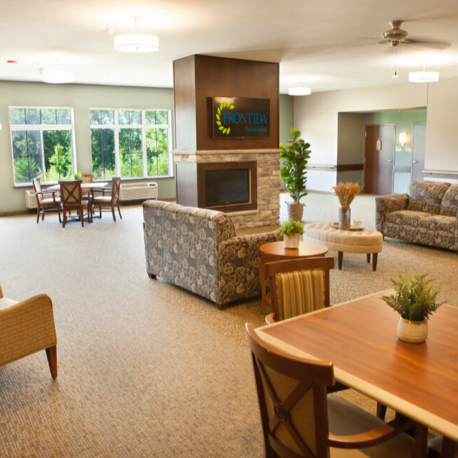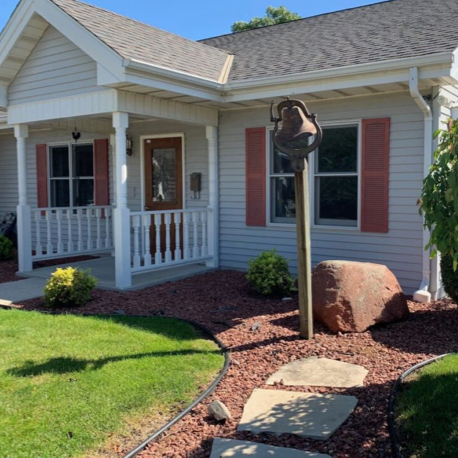When a loved one begins to experience memory loss, whether due to Alzheimer’s, dementia, or another cognitive condition, it can be overwhelming to navigate the available care options. One common question families often have is whether memory care is considered skilled nursing.
While there are some shared aspects, these 2 types of care serve distinct purposes and address different levels of need.
Memory care is specifically designed to support older adults living with memory and cognitive impairment. Skilled nursing, on the other hand, primarily focuses on providing care for seniors with various physical or chronic health conditions.
Selecting the care option that most appropriately supports your loved one depends on their individual needs. The services offered and the criteria for admission can vary between these 2 types of care.
What Is Memory Care & Who Is It For?
Memory care is a specialized type of long-term care designed specifically for individuals living with dementia, Alzheimer’s disease, or other memory-related conditions.
These communities are thoughtfully designed to help reduce confusion and provide comfort with routines and settings that support cognitive health.
Key features of memory care include:
- Personalized care plans tailored to cognitive needs
- Medication management & daily living assistance (bathing, dressing, eating, etc.)
- 24/7 supervision in a secure environment to prevent wandering
- Activities & therapies (like music or occupational therapy) that promote engagement
- Staff trained in dementia care & communication strategies
What sets memory care apart is its focus on safety, emotional support, and maintaining a sense of connection for residents.
What Is Skilled Nursing & Who Benefits from It?
Skilled nursing is a more medically intensive form of care, often necessary for individuals recovering from illness, surgery, or managing serious chronic conditions. Depending on health needs, it can be a short or long-term solution.
Skilled nursing services usually include:
- 24/7 medical care from licensed nurses
- Medication administration & wound care
- Post-surgical recovery & rehabilitation
- In partnership with Paxxon Healthcare Services, Frontida offers physical, speech, and occupational therapies.
- Support with daily activities alongside medical oversight
All of Frontida’s communities also require a clinical assessment to determine the appropriate level of care for each resident.
Is There Any Overlap?
Yes—sometimes. Some communities offer both memory care and skilled nursing within the same location.
When communities offer both, it can provide a smoother transition if a resident’s needs evolve over time. It also means families don’t have to worry about relocating their loved one when additional medical care becomes necessary.
The type of integrated care promotes continuity, offering peace of mind that your loved one can receive cognitive and medical support under one roof.
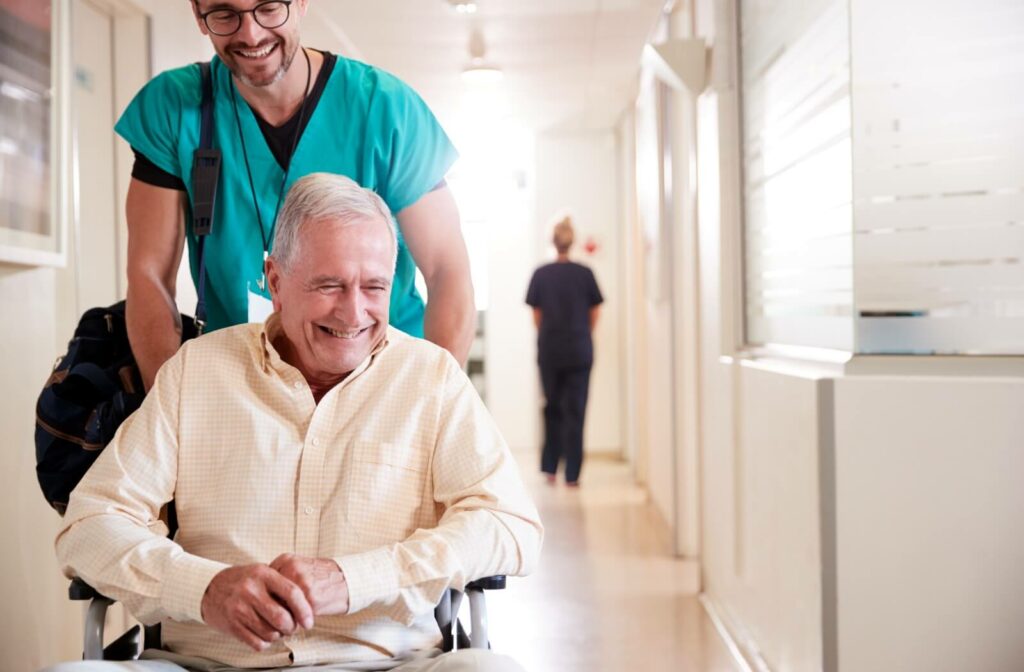
How Are Memory Care & Skilled Nursing Different?
While memory care and skilled nursing similarly provide 24-hour supervision and assistance with daily living tasks, they differ significantly in focus, staff training, environment, and admission criteria.
Understanding these differences can help families make the right choice based on their loved one’s unique needs.
Memory Care: Focus on Cognitive Support & Safety
Memory care is designed specifically for individuals with Alzheimer’s, dementia, or other memory-related conditions. The primary goal is to provide cognitive support and promote the safety of residents.
Staff Training
The staff in memory care communities are trained in dementia care, which includes specialized techniques for managing challenging behaviors, improving communication, enhancing emotional well-being, and enriching daily life.
Environment
The environment is calming, structured, and secure with features that can help reduce confusion and minimize the risk of wandering.
Admission Criteria
Admission into memory care is typically based on the cognitive needs of the individual, rather than medical conditions.
When Should You Choose Memory Care?
Memory care is the right choice if your loved one:
- Has been diagnosed with Alzheimer’s, dementia, or another memory-related condition
- Is at risk of wandering or becoming disoriented
- Needs help with daily tasks, but doesn’t require complex medical treatment
- Shows signs of confusion, paranoia, or significant personality changes
- Is struggling with social isolation or lacks stimulation at home
Skilled Nursing: Focus on Medical Care & Rehabilitation
Skilled nursing is a medically intensive form of care for individuals who require ongoing medical monitoring and treatment. The level of care is often needed after a hospital stay or for individuals with chronic health conditions.
Staff Training
Skilled nursing staff can handle complex medical procedures, provide rehabilitation, and manage emergency care. Their staff may include registered nurses (RNs), licensed practical nurses (LPNs), and physical or occupational therapists.
Environment
Skilled nursing spaces have a clinical environment focusing on recovery and health management.
Admission Criteria
Admission is typically based on medical necessity and often requires a physician’s referral or assessment.
When Should You Choose Skilled Nursing?
Skilled nursing may be the right choice if your loved one:
- Has recently been hospitalized & needs rehabilitation support
- Requires injections, wound care, or other medical procedures
- Has multiple chronic health conditions needing 24/7 medical supervision
- Needs help recovering from a stroke, surgery, or severe illness
- Is facing a temporary or permanent decline in physical health that makes home care difficult
Making a Confident, Compassionate Choice
Choosing a care option that supports their needs is about meeting your loved one where they are—physically, emotionally, and mentally. If you still have questions about the right path for your loved one, that’s perfectly okay. We’re here to help.
Frontida offers memory care services at several Wisconsin locations. We’d be honored to help guide you through the decision process and show you how we can provide the care and dignity your loved one deserves.
Schedule a tour today at the location nearest to you and talk with our experienced care team about what’s best for your family.


